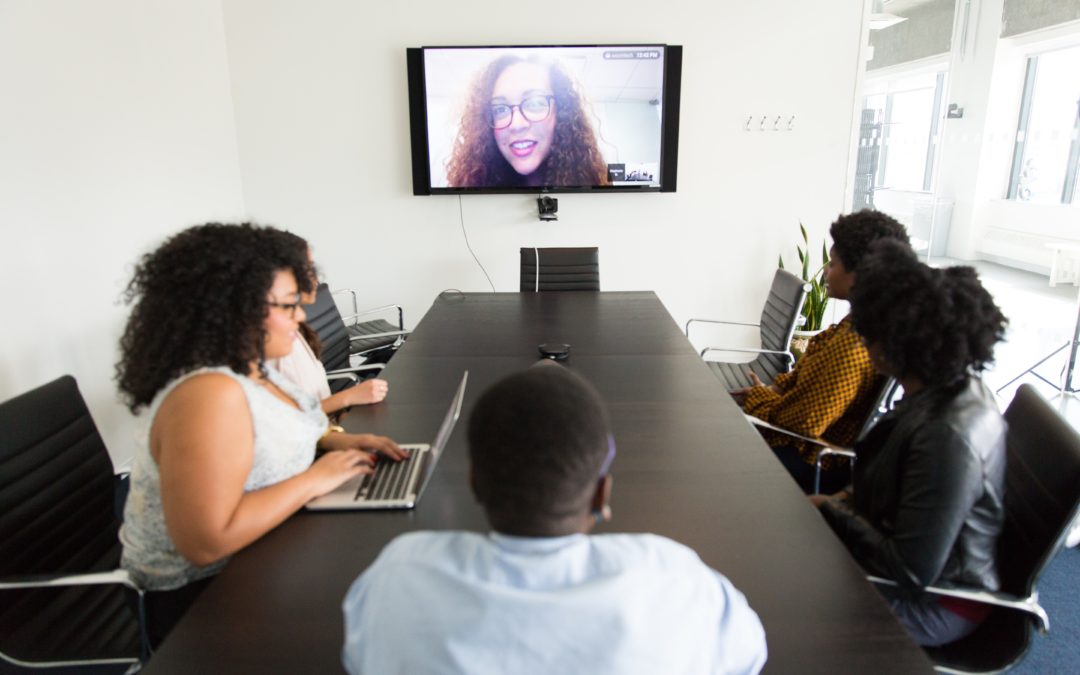How Can You Reinforce Culture for A Distributed Team
In your distributed team, reinforcing your core values is vital in getting the proper employee buy-in. As you communicate your core values, you want your team to believe in what your brand represents honestly. However, it can be challenging to instill the same beliefs in a multicultural group from all walks of life.
Virtual teams can still be as loyal as full-time teams inside your office; you only need to know how you can connect them to your mission and values. Here’s how you show your culture to remote teams and reinforce it to build loyalty.
1. Define Your Company Culture
When it comes to an organization, company culture is an important aspect that allows teams to experience your core values. It would be best to define your company’s culture and clearly articulate it to your employees.
The company culture should align with your corporate values and mission statement. Your company’s mission and vision should reflect your shared goals and guiding principles.
Employees should be familiar with your corporate culture. They should understand the behaviors and attitudes that are encouraged within your organization.
Tell them the organization’s ethical code. The code should be clearly stated and understood by all employees. Your leaders should also create rules of conduct that all staff members follow, especially ones that concern the “ethos” of the business.
2. Share Your Culture
Your company has a culture, but it has the power to influence how people perceive and interact with others within the organization. Your distributed team members should be able to understand and appreciate your organizational goals. These should include both short-term and long-term business objectives.
As an employer, you should share your vision and involve your people. Your internal communication should also be consistent. All your correspondences should have the same message.
If you’ve hired people from different countries, they should be allowed to experience your local culture. This will enable them to feel part of the community you’re building.
3. Communicate Consistently
Communication is a two-way street. Your virtual staff should know how to communicate with you. Your messages should be clear, concise, and easy to understand. You should avoid sending long emails or texts as these can be overwhelming.
Your employees are your most valuable asset, including your virtual staff. Regardless of their geographic location, you should be able to establish and maintain your rapport.
Your messages are more effective if delivered personally or through other media. This gives them a personal connection. Your people love to know what you’re doing and where you’re headed.
4. Encourage Transparency
A lack of transparency in your organization can lead to disappointment and distrust. Your global workforce should be transparent with you as well. Your employees are part of your extended network of friends and family. They deserve to know what goes on within your office environment.
Every decentralized team is your support system. They should communicate regularly, have a channel to discuss work-related matters, and brainstorm ways to improve operations.
Human resources are your most valuable assets; they should feel valued. They want to be treated well, and you should know about their struggles. They want you to listen to them and act on their suggestions.
Feedback also plays a significant role in your team member’s performance. You should provide positive and negative comments that build them up, letting them know where you stand and helping them improve.
5. Foster Better Opportunities
Your people can work for you from anywhere in the world, but they still need to be given opportunities to grow personally and professionally. It would help if you allowed them to travel to meet clients and attend events.
People want to feel like they’re making a difference. You should provide opportunities for them to grow. You can’t expect them to perform at their best if they don’t have the freedom to be innovative and try new things. They must have opportunities to solve problems creatively.
Remote employees should have the opportunity to explore different areas of the business. They should be encouraged to develop their skills and pursue new interests. Reward your people with promotions and raises that reflect their contributions; don’t make them wait for a long time to see their progress.
6. Give Them Rewards
Everyone loves to get rewarded for their hard work. Your people should feel like they are being appreciated and recognized for their achievements. You can use incentives and rewards to motivate your people and to keep them motivated.
Rewards don’t have to be monetary; recognition could mean different things to different people. Positive reinforcement is suitable for any thriving workplace. Recognition of, and appreciation for, a job well done is an essential aspect of any healthy organization.
Loyalty and appreciation can spark your workers’ passion and excitement. It’ll improve their morale and give them a sense of self-worth at work. Even though you and your staff are separated by distance, you should still treat them like family. Establish a work-life balance. Let your people feel connected to you.
7. Define and Negotiate Employee Expectations
Regardless of the geographical location, your workers and partners need to work together to achieve maximum productivity and meet everyone’s needs. You can achieve results by agreeing on responsibilities, deadlines, and priorities.
Your people in diverse cultures expect and need clarity. They want to know their role in the team and their expectations. They want to see if you’ve made definite commitments.
As the employer, you can ensure everyone is on the same page by communicating expectations.
8. Avoid Cultural Misunderstanding
It’s essential to have a better understanding of your culturally diverse workforce. Please talk with your local and global staff and understand why they work the way they do, what each person is good at, and what they want to accomplish.
Diversity creates a unique challenge: mixing and blending different cultures and personalities can stir up complex issues. It can generate misunderstandings and conflict.
Team members may have dramatically different definitions of success.
That’s ok.
How an employee defines their cultural values and norms may define success. It would help if you allowed them to discuss their expectations and perceptions. These conversations can help prevent conflicts.
The Bottom Line
Your people are your greatest asset. It would be best to treat your international and remote employees and contractors respectfully. Whether in-office or working remotely, you should talk to them and get to know them.
Although your globalized team has diversity, it shouldn’t stop you from establishing a solid bond. Your relationships should extend beyond the workplace. Your commitment to your worldwide community is what matters.

Sophia Young recently quit a non-writing job to finally be able to tell stories and paint the world through her words. She loves talking about fashion and weddings and travel, but she can also easily kick ass with a thousand-word article about the latest marketing and business trends and finance-related topics and can probably even whip up an excellent heart-warming article about family life. She can go from fashion guru to your friendly neighborhood cat lady with mean budgeting skills and home tips.
Photo by Christina Morillo:
You can set up a time to chat with me about your marketing challenges using my calendar. Email me jeffslater@themarketingsage.com Call me. 919 720 0995. The conversation is free, and we can explore if working together makes sense. Watch a short video about working with me.





